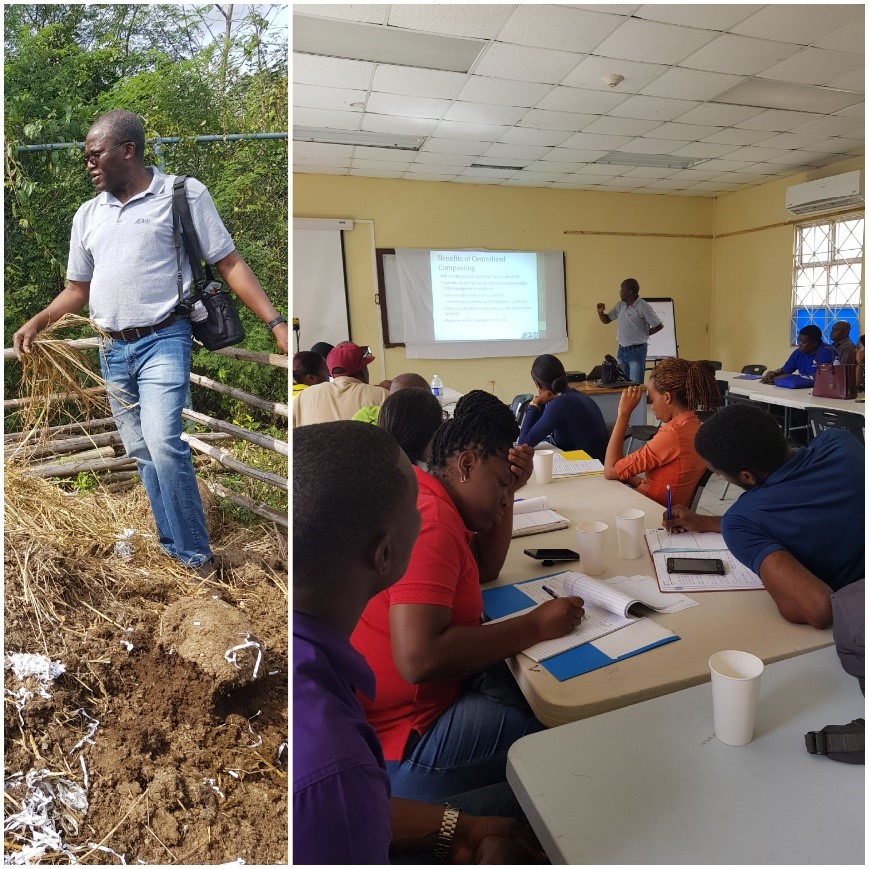Principles of integrated waste management, waste stream analysis, comparing national and regional data, waste management options and composting as a waste management option were presented to the participants.

Kingston, January 29, 2020 (IICA). – The Inter American Institute for Cooperation on Agriculture (IICA) organized a workshop in Jamaica on solid waste management as a major challenge for most Caribbean territories given the large volumes of solid waste generated by economic and household activities.
IICA’s specialist in waste management, Abimbola Abiola, conducted a two-day workshop in Jamaica under the theme “Examining Economic Opportunities from Managing Organic Waste”.
45 participants, including national specialists from various agencies and producers, were hosted at the Ebony Park Heart Trust Academy where the workshop was conducted.
The topics presented by Abiola at the workshop included principles of integrated waste management, waste stream analysis, comparing national and regional data, waste management options and composting as a waste management option.
The participants were particularly intrigued by the compost recipe calculator. This is a Microsoft Excel spreadsheet that was developed by Abiola to calculate the carbon to nitrogen ratios (C:N) for the combination of selected substrates. Each participant got a copy of the spreadsheet which they can use to develop their own individual compost “recipes”.
The training event is the initial action to roll out the IICA project “Creating Economic Opportunities through the Adoption of Bioeconomic Models”, which targets six Caribbean countries: Belize, Jamaica, Saint Lucia, Trinidad and Tobago, Guyana and Bahamas.
IICA has asserted that preventing waste and making better use of waste as a resource will eventually bring significant economic as well as health and environmental benefits for the Caribbean.
Through this project IICA will be able to engage the private and public sectors to develop partnerships to strengthen the capacities of technicians and producers in the Caribbean with respect to organic waste management. This is to promote the proper utilization of organic waste based on the concept of the bioeconomy, which entails reducing the foot print of economic activity on the environment.
More information:
IICA Delegation Office in Jamaica
iica.jm@iica.int











